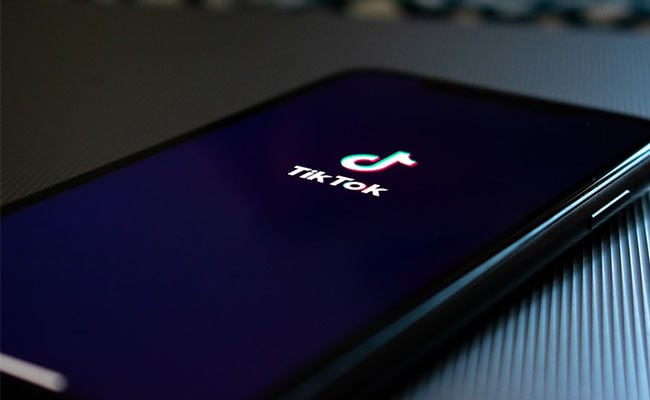
India's move to ban 59 Chinese-origin mobile phone apps "abuses national security exceptions" and could constitute a breach of WTO rules, China said Tuesday in a strong response to the development, adding that it was "seriously concerned". TikTok, WeChat, UC Browser and two Xiaomi apps were among 59 blocked by the government on Monday over national security and privacy concerns. The decision came two weeks after 20 Indian soldiers were killed in a violent face-off with Chinese troops in eastern Ladakh and highlights swiftly rising tensions between the two nations over a decades-old border row.
Here are the top 10 points in this big story:
"India's measure selectively and discriminatorily aims at certain Chinese apps on ambiguous and far-fetched grounds, runs against fair and transparent procedure requirements, abuses national security exceptions and (is) suspected of violating WTO rules. It also goes against the general trend of international trade and e-commerce and is not conducive to consumer interests and market competition in India," Ji Rong, a spokesperson for the Chinese Embassy, said.
The Chinese government also said "we expect India (will) acknowledge mutually beneficial nature of China-India economic and trade cooperation, and (we) urge the Indian side to change its discriminatory practices... treat all investments and service providers equally... create an open, fair and just business environment".
Pointing out that these apps have millions of users in India - TikTok alone has around 120 million active users - China insisted the apps "have been operating strictly in accordance with Indian laws and regulations" and banning them would also lead to loss of jobs in India for those employed by the app makers. The Chinese government has also reminded its Indian counterpart that it has a responsibility to protect business rights.
The government has said the ban is interim and that the banned apps will have a chance to respond to the government's concerns before a committee drawn from various ministries. This committee will then decide whether to continue or revoke the ban.
In its initial response to the ban TikTok India said it had not shared private information of its users with "any foreign government, including the Chinese government". TikTok India also said "if we are requested to in the future we would not do so". The app places the highest importance on user privacy and integrity, TikTok India said.
On Monday, when India announced the ban, a statement said the apps were blocked "in view of information available they are engaged in activities which is prejudicial to sovereignty and integrity of India, defence of India, security of state and public order".
The government statement referred to "compilation of (user) data, its mining and profiling by elements hostile to national security and defence of India, which ultimately impinges upon the sovereignty and integrity of India". The government also called it a "targeted move to ensure sovereignty of Indian cyberspace".
The ban is expected to hit ByteDance, TikTok's parent company. Since 2019 the firm has hired several senior executives in India and laid out plans to invest $1 billion. The country is its top market and accounts for 30 per cent of its two billion downloads worldwide. According to news agency Reuters, when TikTok India was banned briefly last year - over claims it encouraged pornography - the company said it lost $15 million a month.
The ban has also left Tencent, which has declined to comment on the matter, disappointed. Tencent Holdings, which is valued at over $500 billion by Forbes, has multiple apps on the market, including the popular game "Clash of Kings". It is also a major investor in Indian start-ups, two sources aware of the company's concerns told Reuters.
Anti-China sentiment has been simmering since the June 15 border clash in Ladakh. There have been calls to ban Chinese firms, which reportedly export goods worth nearly $60 billion to India, and even boycott restaurants serving Chinese food - that call was made by Union Minister Ramdas Athawale.

